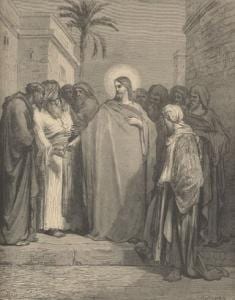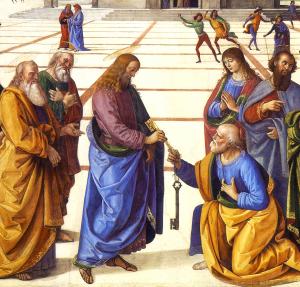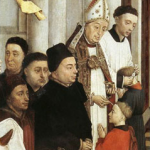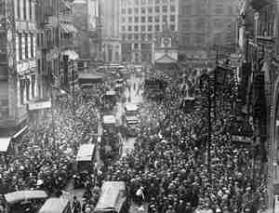Then said Jesus to the crowds and to his disciples, “The scribes and the Pharisees sit on Moses’ seat; so practice and observe whatever they tell you, but not what they do; for they preach, but do not practice.”
—Matthew 23:1-3
Recently your humble servant has been writing about how bishops should be elected by the people of the diocese. While it is an idea that has pleased some, it has been met with derision by others. That has to be expected. Although it is a practice that goes back to the earliest days of the Church, it is a practice with which modern Catholics are completely unfamiliar. It is, therefore, understandable that some would think that I have been suggesting a change in the nature of the Church.
 But even to those who are favorable to the idea in theory it may seem quixotic of me to bring it up. In order for such a radical change to take place, the bishops would have to allow it. And none of them were selected by anything resembling popular suffrage. In fact, bishops are no longer required to even be from the dioceses they are to preside over. They are simply promoted and assigned like branch managers, and there is no requirement that they have any previous connection to the local churches they are to govern.
But even to those who are favorable to the idea in theory it may seem quixotic of me to bring it up. In order for such a radical change to take place, the bishops would have to allow it. And none of them were selected by anything resembling popular suffrage. In fact, bishops are no longer required to even be from the dioceses they are to preside over. They are simply promoted and assigned like branch managers, and there is no requirement that they have any previous connection to the local churches they are to govern.
It is no wonder, then, that they would have such an emotional distance from their flocks so as to allow sexual predators to run loose in the churches, given that they have spent their careers seeking preferment like corporate executives, with all of the vacuous character traits that such endeavors bring to bear.
None of this is new, of course. The Church has had crises of leadership since Judas Iscariot took his thirty pieces of silver. And even before then, there were the scribes and Pharisees who devoured widows’ houses and for a pretense made long prayers. (Luke 20:47)
The moral authority of such can be seen to be reasonably questioned. How can they be believed about such issues as birth control while they provide cover for child molesters?
 Jesus provided the paradoxical answer: they sit in the seat of Moses, of the Apostles. Thus, the bishops are to be obeyed, though not emulated.
Jesus provided the paradoxical answer: they sit in the seat of Moses, of the Apostles. Thus, the bishops are to be obeyed, though not emulated.
This isn’t the only hard saying of Jesus. He told the rich young man to sell all he had and give the proceeds to the poor. He said whoever lusts after a woman has committed adultery in his heart. He said, “If any one comes to me and does not hate his own father and mother and wife and children and brothers and sisters, yes, and even his own life, he cannot be my disciple.” (Luke 14:26)
It is natural for us to hope for men who are worthy of being obeyed. But that is not always afforded us. Perhaps it is not even usually afforded us. Still, Jesus couldn’t have been clearer.
This goes against the grain, and doubtlessly some will find it offensive. In that respect it is much like many other things Jesus said. That’s why it is necessary to have faith to follow him.
The icon of St. Joseph the Worker is by Daniel Nichols.
Please go like Christian Democracy on Facebook here. Join the discussion on Catholic social teaching here.
Biblical quotations are from the Catholic Edition of the Revised Standard Version of the Bible, copyright 1965, 1966 by the Division of Christian Education of the National Council of the Churches of Christ in the United States of America. Used by permission. All rights reserved.












